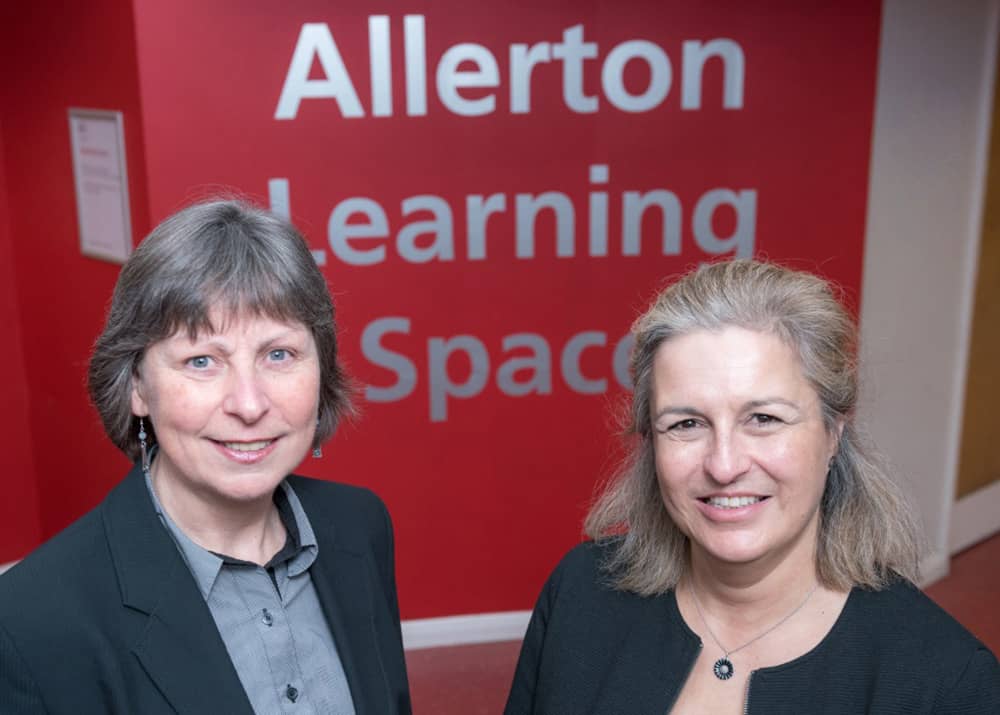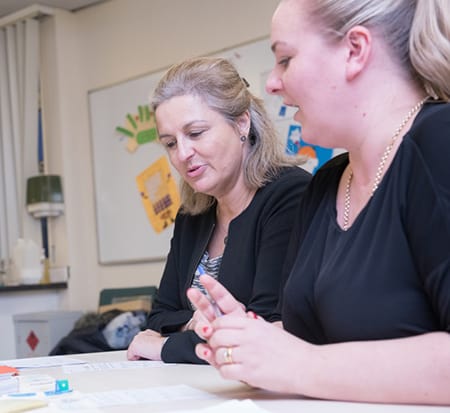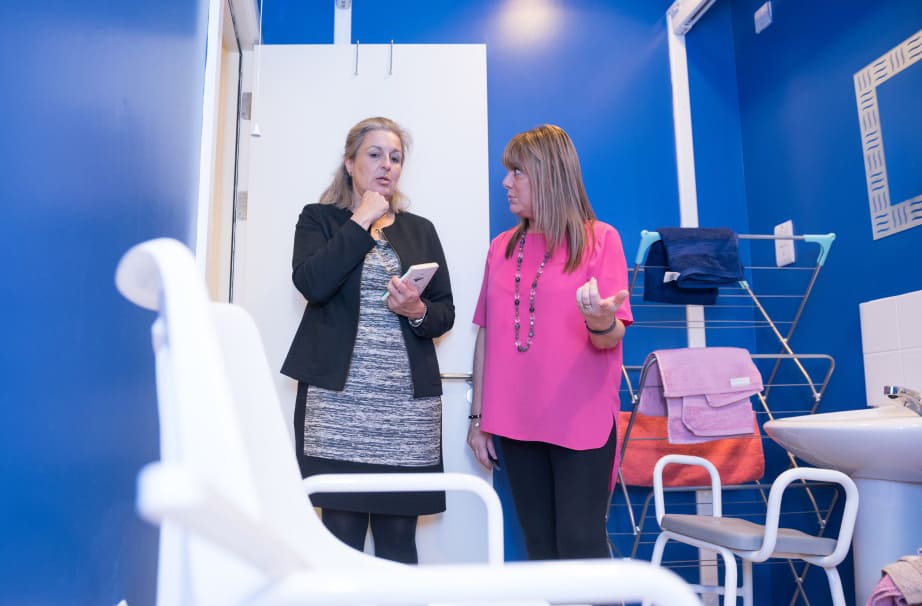Simulation suite provides OT students real life experience

“Using a simulation of a home environment is a very valuable process for students studying in this health profession”
Students from the University of Salford will be provided with a practical insight into occupational therapy, after the University opened its newly-developed Activities of Daily Living (ADL) Simulation Suite.
The ADL suite, unveiled by Julia Scott, CEO for the College of Occupational Therapists, enables students to put into practice the skills they have learnt whilst studying occupational therapy at the University. This includes being able to practice many of the daily tasks that occupational therapists carry out when helping infirm people to become more independent in their daily routines.
These tasks, which able-bodied people take for granted, can include anything from assisting someone to get in and out of bed, to helping someone to make a simple cup of tea.
Using the ADL suite, which has been fitted with a wide-range of graded activities to replicate those tasks, students can develop the occupational therapy skills which they have acquired during the programme, all within a safe learning environment. This includes their observation and assessment skills, their movement and handling of a ceiling track hoist, and their intervention skills using simulated case studies. This simulated experience will hugely benefit the confidence levels of students as they prepare for their first work placements.
To help students adapt to the environment they will be working in as part of this health profession, the ADL suite consists of a lookalike living area complete with furnishings, pictures, and a range of equipment which facilitates independence. The suite also has a bedroom, kitchen and bathroom, all of which contain several trip hazards that put many people at risk in their own homes.
These trip hazards are purposely placed to make students become more vigilant as occupational therapists. Each area of the suite is also fitted with cameras to allow students to be observed during their assessments. This will permit intervention from adjacent classrooms so lecturers can provide students with critical analysis and active reflections.
Julia Scott, CEO of the College of Occupational therapists, said: “I am extremely impressed by the ADL suite here at Salford. It demonstrates why the University is held in such high esteem, and having spoken with some of the staff and students, I get a very strong impression that Salford’s education in occupational therapy is certainly ahead of the times.
“Using a simulation of a home environment is a very valuable process for students studying in this health profession, and whilst it’s said that all aspects of education can’t identically replicate the experiences which students will face in the real world, these facilities undoubtedly provide the occupational therapist students with a learning environment that is as close to real thing as possible. The University can be justifiably proud of this facility.”

“The ADL suite is a great example of how we, as a University, offer students with the best possible facilities in order to develop their learning. The use of this suite will enable our occupational therapy students to apply the skills they have been taught into a real-life environment. This will be incredibly beneficial to them when they link up with the health industry during their placements and after graduation.”
As part of the opening of the ADL suite, Julia delivered an evening lecturer on occupational therapy to Salford’s students and practitioners. Julie also judged a range of games related to wellbeing which had been developed by a selection of second-year occupational therapy students during their Understanding People as Occupational Beings module.
The games demonstrated the students’ understanding of the concepts in the module including occupational balance, mastery, choice, and obligation etc. and the winners received a signed certificate from Julia for their employability portfolio.


